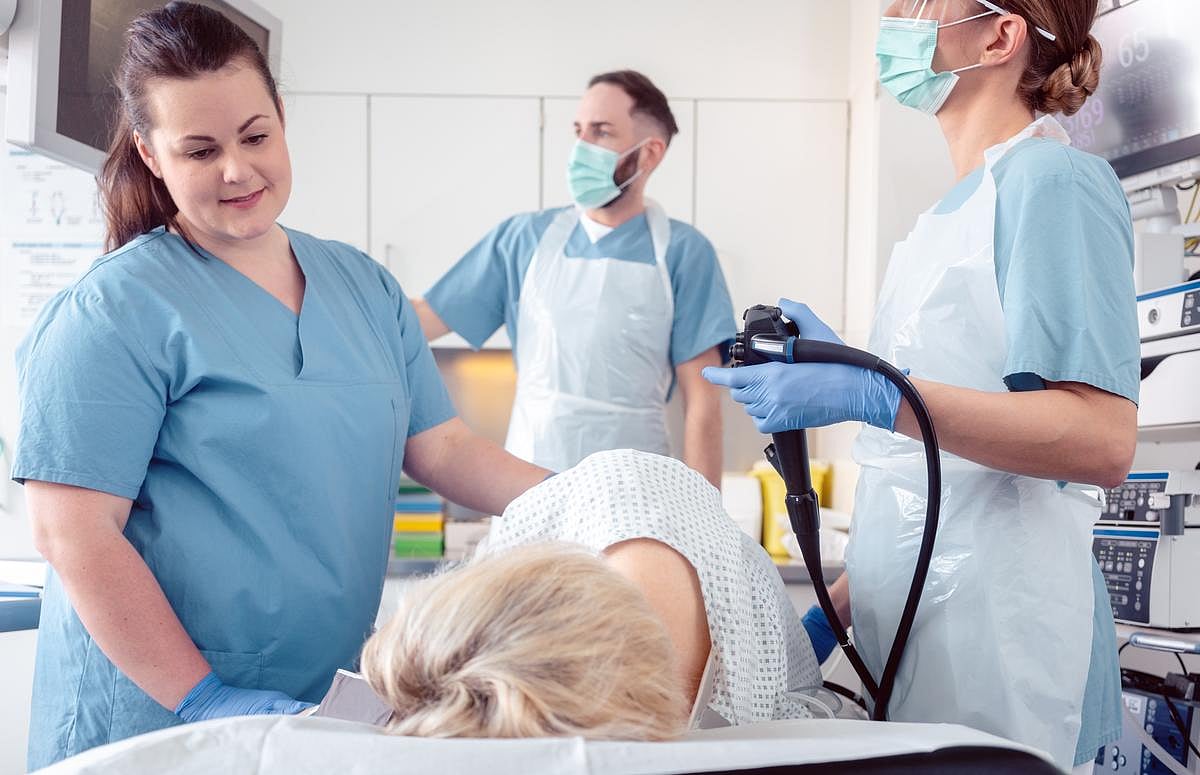Get Healthy!

- Posted August 14, 2025
Gut Docs Lose Their Edge Leaning On AI Assistance For Colonscopy
Artificial intelligence (AI) is being touted as a means of improving doctors’ effectiveness, but the new tool might dull their skills in some instances, a new study argues.
Specifically, doctors became worse at performing colonoscopies after AI started assisting them, researchers reported Aug. 12 in The Lancet Gastroenterology & Hepatology.
Doctors’ ability to detect precancerous growths in a person’s colon decreased by 20% in non-AI assisted colonoscopies, several months after AI had been introduced, researchers found.
“To our knowledge this is the first study to suggest a negative impact of regular AI use on health care professionals' ability to complete a patient-relevant task in medicine of any kind,” said researcher Dr. Marcin Romańczyk, an assistant professor of gastroenterology at the Academy of Silesia in Poland.
“Our results are concerning given the adoption of AI in medicine is rapidly spreading,” Romańczyk said in a news release. “We urgently need more research into the impact of AI on health professional’s skills across different medical fields.”
Colon cancer is one of the few completely preventable cancers, thanks to colonoscopy.
During the procedure, a medical specialist called an endoscopist runs a thin lighted tube up through a person’s colon, looking for precancerous polyps. These polyps can be removed on the spot, using tools threaded through the tube.
Previous studies have shown that AI can increase the detection of polyps during colonoscopy, but there’s a lack of research into how relying on AI might affect an endoscopist’s skills.
For the study, researchers tracked colonoscopies performed at four medical centers in Poland between September 2021 and March 2022 by 19 experienced endoscopists.
Regular AI use in colonoscopy had been introduced at the centers at the end of 2021, after which the procedure was randomly performed with or without AI assistance.
During the study, 1,443 colonoscopies were conducted without AI assistance, including 795 before and 648 after AI had been implemented.
The average rate of polyp detection during non-AI colonoscopies decreased from 28% prior to AI implementation to 22% after the doctors started using AI, results show. AI-assisted colonoscopies had a 25% detection rate.
“These results pose an interesting question about previous randomized controlled trials which found AI-assisted colonoscopy enabled a higher (polyp) detection rate than non-AI assisted colonoscopy,” senior researcher Yuichi Mori said in a news release. He’s a professor of health management and health economics at the University of Oslo in Norway.
“It could be the case that non-AI assisted colonoscopy assessed in these trials is different from standard non-AI assisted colonoscopy, as the endoscopists in the trials may have been negatively affected by continuous AI exposure,” Mori said.
In an accompanying editorial, Dr. Omer Ahmad of University College London wrote that “these findings temper the current enthusiasm for rapid adoption of AI based technologies [...] and highlight the importance of carefully considering possible unintended clinical consequences.”
Ahmad, a gastroenterologist and endoscopist who was not involved in the research, offered a further caution.
“Although AI continues to offer great promise to enhance clinical outcomes, we must also safeguard against the quiet erosion of fundamental skills required for high-quality endoscopy,” he concluded.
More information
The American Cancer Society has more on colonoscopy.
SOURCE: The Lancet, news release, Aug. 12, 2025






